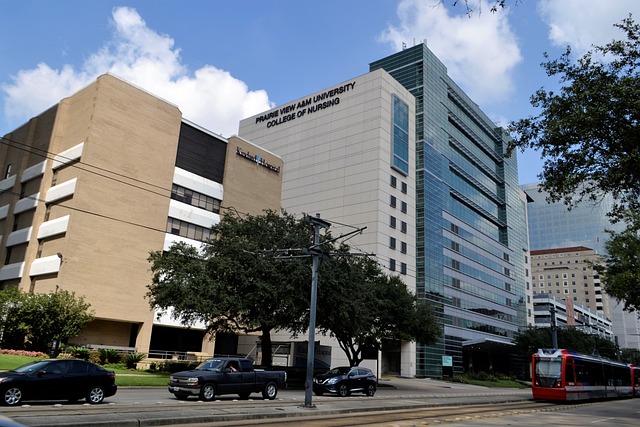- 1. Educational Background for MBBS in USA:
- 2. Standardized Testing for MBBS in USA:
- 3. Documents of MBBS in USA:
- Transcripts:
- 4. Extracurricular Activities and Experiences for MBBS in USA:
- 5. Financial Resources for MBBS In USA:
- 6. Visa Requirements for MBBS in USA:
- 7. Adapting to a New Culture and Education System:
- 8. USMLE (United States Medical Licensing Examination):
- Additional Considerations for MBBS in USA:
- Residency Matching:
- Taking the Next Step:
The dream of becoming a doctor transcends borders. The USA, with its world-renowned medical schools and cutting-edge healthcare system, is a top destination for international students aspiring to a career in medicine. However, the path to becoming MBBS in USA for international students comes with its own set of requirements and challenges.
This article provides a comprehensive guide for international students outlining the eight key requirements for applying to MBBS programs (MBBS stands for Bachelor of Medicine, Bachelor of Surgery, the equivalent of an MD in the USA) in the US.
1. Educational Background for MBBS in USA:
Strong Foundation in Science:
US medical schools emphasize a strong foundation in science subjects. International students must have completed their secondary education (high school) with a rigorous curriculum in biology, chemistry, physics, and mathematics. Advanced Placement (AP) or International Baccalaureate (IB) courses in these subjects are highly recommended to demonstrate academic preparedness.
Bachelor’s Degree:
Unlike some countries like USA where MBBS in USA is an undergraduate degree, the US requires a bachelor’s degree for entry into medical school. This can be in any field, but a science-related major (biology, chemistry, biochemistry etc.) is advantageous as it provides a strong foundation in scientific knowledge and research methodologies.
Some medical schools might prefer applicants with a specific pre-med curriculum that includes coursework in human anatomy, physiology, and social sciences relevant to healthcare.

2. Standardized Testing for MBBS in USA:
Medical College Admission Test (MCAT):
The MCAT is a standardized, multiple-choice test that assesses an applicant’s critical thinking, problem-solving abilities, knowledge of scientific concepts, and writing skills. It is essential for all students applying to medical schools in the USA. International students should register for the MCAT well in advance and thoroughly prepare for the exam using official MCAT resources and practice tests.
English Language Proficiency Tests:
International students whose native language is not English must demonstrate English language proficiency by taking the Test of English as a Foreign Language (TOEFL) or the International English Language Testing System (IELTS). The required score varies by medical school, so it’s crucial to check the specific requirements of your target institutions.
3. Documents of MBBS in USA:
Transcripts:
Official transcripts from all academic institutions attended, translated into English by a certified translation service, are required. These transcripts should showcase a strong academic record with good grades, particularly in science courses.
Letters of Recommendation (LORs):
Strong LORs from science professors, pre-med advisors, or physicians who can speak to your academic abilities, work ethic, and suitability for a career in medicine are vital. Aim for at least three LORs, with at least one from a science professor familiar with your work.
Statement of Purpose (SOP):
The SOP is your opportunity to tell your story and explain your motivations for pursuing medicine in the USA. It should highlight your academic achievements, relevant experiences (research projects, volunteer work, clinical shadowing), and career goals.
4. Extracurricular Activities and Experiences for MBBS in USA:
Healthcare Experience:
Demonstrating a genuine interest and commitment to a career in medicine is crucial. Look for opportunities to gain exposure to the healthcare field through volunteering in hospitals, clinics, or community health programs. Shadowing physicians in different specialties can also provide valuable insights into the diverse paths within medicine.
Research Experience:
Research experience, even if limited, can showcase your scientific curiosity, problem-solving skills, and ability to work independently. Consider participating in research projects with professors at your undergraduate institution or seeking summer research opportunities at research institutions.
Leadership and Teamwork Skills:
Medical schools value well-rounded individuals with strong leadership and teamwork skills. Highlight experiences that demonstrate these skills, such as leadership roles in student organizations, participation in team-based projects, or volunteer initiatives requiring collaboration.
5. Financial Resources for MBBS In USA:
Cost of Attendance:
Studying medicine in the USA can be expensive. International students are typically ineligible for federal financial aid, so they must demonstrate their ability to cover the entire cost of attendance, including tuition, fees, living expenses, and health insurance.
Financial Aid Options:
While federal aid options are limited, some medical schools offer scholarships or financial aid specifically for international students. Additionally, some private scholarships and loan programs cater to international medical students. Explore all available options and plan your finances meticulously.

6. Visa Requirements for MBBS in USA:
Student Visa (F-1):
International students require an F-1 visa to study in the USA. The application process involves submitting various documents, including proof of acceptance to a medical school, financial support documents, and a valid passport. It’s advisable to consult with immigration advisors or the US embassy/consulate in your home country for guidance on the specific visa application procedures.
7. Adapting to a New Culture and Education System:
Cultural Adjustment:
Studying medicine in the USA involves integrating into a new culture and education system. Be prepared to adapt to different teaching styles, communication methods, and social norms. Researching American culture and healthcare practices beforehand can ease the transition.
Support Systems:
Building a strong support system with fellow international students, American classmates, or mentors familiar with the US medical education system can be invaluable. They can provide guidance, share experiences, and help you navigate academic and social challenges.
8. USMLE (United States Medical Licensing Examination):
The Long Road to Practice:
Even after graduating from medical school, the journey to becoming a licensed physician in the USA is not complete. International students must pass the United States Medical Licensing Examination (USMLE), a three-step comprehensive exam that assesses their medical knowledge and clinical skills.
Preparation and Resources:
Start familiarizing yourself with the USMLE format and content early on. Numerous resources are available, including official USMLE study materials, practice tests, and preparatory courses. Strategic planning and dedicated preparation are crucial for success on the USMLE.
Additional Considerations for MBBS in USA:
Accreditation:
Ensure the medical school you apply to is accredited by the Liaison Committee on Medical Education (LCME). Accreditation signifies that the school meets rigorous educational standards and graduates are eligible for residency programs in the USA.
Residency Matching:
After graduating from medical school and passing USMLE steps 1 and 2, international students must participate in the National Resident Matching Program (NRMP) to secure a residency position in a hospital for further training in a specific medical specialty. Competition for residency positions, especially in certain specialties, can be fierce.
Taking the Next Step:
- Research accredited medical schools in the USA and explore their specific application requirements and deadlines.
- Start preparing for standardized tests like the MCAT and English proficiency exams well in advance.
- Seek out opportunities to gain healthcare experience through volunteering, shadowing physicians, or research projects.
- Connect with international student advisors at your undergraduate institution or medical schools you are interested in.